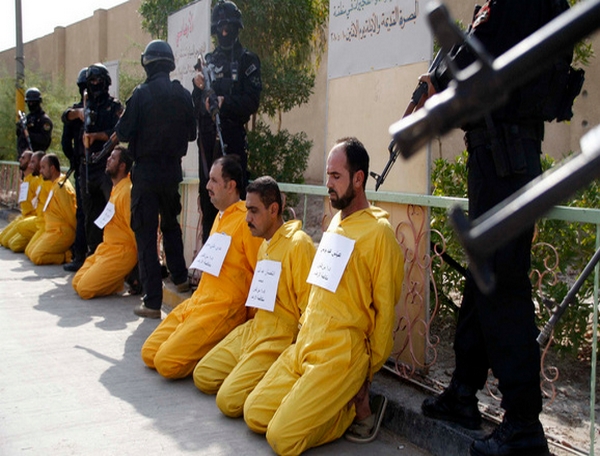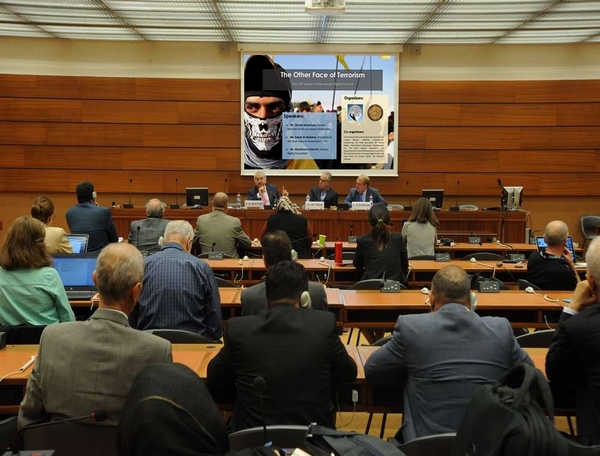21 Sept 2013
It is time the United States clears old debts in Iraq
Daniela Dönges, GICJ Special Procedures and Reporting Section
On Friday 30 August 2013 the American Secretary of State John Kerry stood in front of the cameras and self-confidently declared that a military intervention in Syria would not repeat the mistakes of the Iraqi invasion and that the American community was more than mindful of the Iraq experience. His words were echoed by the American President Barack Obama, who in his 10 September 2013 primetime address to the country did everything to convince the public that Syria would not be Iraq and the he won’t let it be.“
I will not pursue an open-ended action like Iraq or Afghanistan. I don’t think we should remove another dictator with force - we learned from Iraq that doing so makes us responsible for all that comes next.” Obama said in his speech and further continued “I have resisted calls for military action, because we cannot resolve someone else’s civil war through force, particularly after a decade of war in Iraq and Afghanistan. Our troops are out of Iraq. Our troops are coming home from Afghanistan. And I know Americans want all of us in Washington. I will not put American boots on the ground in Syria.”
This was the first time a government of the United States openly admitted that the invasion of Iraq was a mistake and yet it was tantamount to an admission of guilt. Certainly, it was the public pressure that drove the Obama administration to such a confession, yet the question arises if the American government is aware of the legal consequences such a confession entails. Even before thinking about entering any new battlefield and playing one more time this world’s police the United States now is under the obligation to act on these words and clear old debts in Iraq.
Of course it is questionable, if the Unites States will understand the scope of its words unless they are forced to. But let’s think for a moment about international law and requirements. The right to truth, justice and reparations is enshrined in international law. On 16 December 2005 the United Nations General Assembly adopted by consensus the Basic Principles and Guidelines on the right to a Remedy and Reparation for Victims of Gross Violations of International Law, which was later the same year endorsed by the United Nations commission on Human rights with the impunity principles.
Acknowledgement constitutes a form of recognizing the significance and value of victims as holders of rights. In 1993 President Bill Clinton therefore issued an apology to the people of Hawaii for the crimes and abuses committed in connection with the overthrow of the legitimate government of the Hawaiian Queen in 1893. Similarly, on 13 February 2008 the Prime Minister of Australia Kevin Rudd issued an apology to the Aborigines of Australia for the injustices visited upon them. An apology to the Iraqi people by all the Governments that participated in the so-called “coalition of the willing” is overdue.
Recognition however is only a first step which further leads to reparations. Reparations provide the material form of the recognition owed to people, whose fundamental rights have been violated. The people of Iraq are entitled to a measure of satisfaction from the Governments of the States that participated in the “coalition of the willing”, as well as compensation for the material and moral injury caused by the invasion and occupation of their country, for a war a war which was repeatedly declared to be an illegal war in contravention or article 2, paragraph 4, of the UN Charter.
In a first step compensation should comprise protecting displaced persons, locating missing and disappeared as well as prosecuting violations committed during and after the war. It should further include re-building the Iraqi infrastructure, which until this day is lying in pieces. The education system has broken down and illiteracy is on the rise. Thousands of children are dying due to poor health services and a worrying increase of birth defects in certain areas has to be noted. To this end a clean-up of the environment from toxic agents susceptible to the horrendous increase of birth defect and cancer is indispensable.
The last point is especially critical with regard to the American rhetoric on the use of chemical weapons by the Syrian regime. If the United States wants to vest itself with the moral authority for a punitive strike on Syria, it first must assume responsibility and condemn its own use of Agent Orange in Vietnam, depleted uranium in Iraq and or white phosphor in Fallujah. Until this day double standards and impunity however remain the dominant feature for Iraq. But what is the moral weight of a condemnation of the use of gas when the very same states do not condemn any use of their own chemical weapons?
Impunity is due to the conflicting goals of realpolitik and justice but this does not mean it cannot be ended. The United States must be taken up on its words.
It is time the United States understands the real scope its actions. Only an unconditional confession of guilt, only an official apology together with the honest desire to provide reparations can restore its moral authority and contribute to a real and sustainable peace in this world. This should be its first and primary obligation, especially before entering any new battlefield.
Documenting and reporting human rights violations in Iraq
| Executions | Human Rights Violations in the context of fight against terrorism | Peaceful protests | ||||
 |
 |
 |
||||
 |
 |
 |
||||












